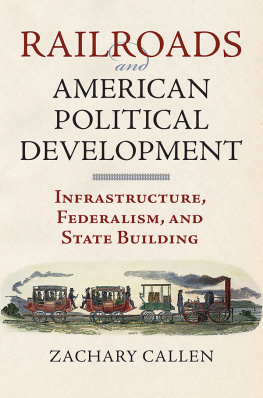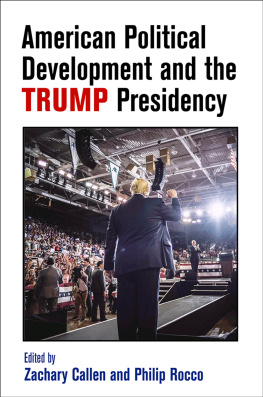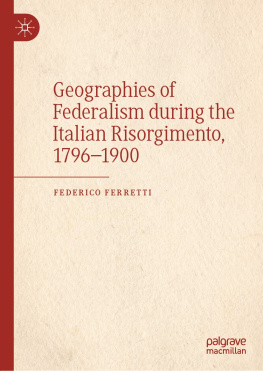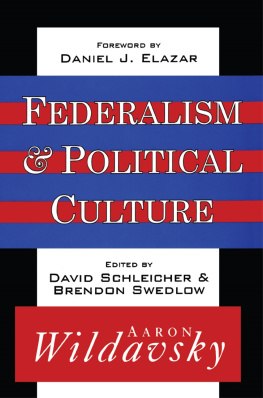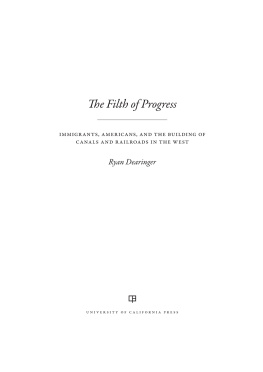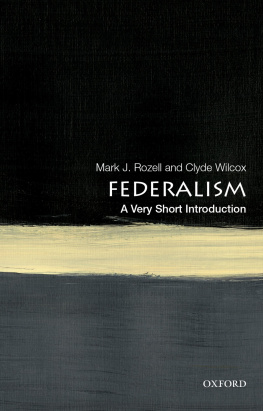Zachary Callen - Railroads and American Political Development: Infrastructure, Federalism, and State Building
Here you can read online Zachary Callen - Railroads and American Political Development: Infrastructure, Federalism, and State Building full text of the book (entire story) in english for free. Download pdf and epub, get meaning, cover and reviews about this ebook. year: 2016, publisher: University Press of Kansas, genre: Politics. Description of the work, (preface) as well as reviews are available. Best literature library LitArk.com created for fans of good reading and offers a wide selection of genres:
Romance novel
Science fiction
Adventure
Detective
Science
History
Home and family
Prose
Art
Politics
Computer
Non-fiction
Religion
Business
Children
Humor
Choose a favorite category and find really read worthwhile books. Enjoy immersion in the world of imagination, feel the emotions of the characters or learn something new for yourself, make an fascinating discovery.
- Book:Railroads and American Political Development: Infrastructure, Federalism, and State Building
- Author:
- Publisher:University Press of Kansas
- Genre:
- Year:2016
- Rating:4 / 5
- Favourites:Add to favourites
- Your mark:
- 80
- 1
- 2
- 3
- 4
- 5
Railroads and American Political Development: Infrastructure, Federalism, and State Building: summary, description and annotation
We offer to read an annotation, description, summary or preface (depends on what the author of the book "Railroads and American Political Development: Infrastructure, Federalism, and State Building" wrote himself). If you haven't found the necessary information about the book — write in the comments, we will try to find it.
Zachary Callen: author's other books
Who wrote Railroads and American Political Development: Infrastructure, Federalism, and State Building? Find out the surname, the name of the author of the book and a list of all author's works by series.
Railroads and American Political Development: Infrastructure, Federalism, and State Building — read online for free the complete book (whole text) full work
Below is the text of the book, divided by pages. System saving the place of the last page read, allows you to conveniently read the book "Railroads and American Political Development: Infrastructure, Federalism, and State Building" online for free, without having to search again every time where you left off. Put a bookmark, and you can go to the page where you finished reading at any time.
Font size:
Interval:
Bookmark:
Political Development
Political Development
and state building

All rights reserved
Names: Callen, Zachary, author.
federalism, and state building / Zachary Callen.
bibliographical references and index.
ISBN 9780700623013 (ebook)
Infrastructure (Economics)Government policyUnited States
History. | Federal aid to transportationUnited StatesHistory.
| FederalismUnited StatesHistory. | BISAC: POLITICAL
SCIENCE / Government / National. | POLITICAL SCIENCE /
Government / State & Provincial. | TRANSPORTATION / Railroads /
History.
LC record available at https://lccn.loc.gov/ 2016018932 .
Political Development
Font size:
Interval:
Bookmark:
Similar books «Railroads and American Political Development: Infrastructure, Federalism, and State Building»
Look at similar books to Railroads and American Political Development: Infrastructure, Federalism, and State Building. We have selected literature similar in name and meaning in the hope of providing readers with more options to find new, interesting, not yet read works.
Discussion, reviews of the book Railroads and American Political Development: Infrastructure, Federalism, and State Building and just readers' own opinions. Leave your comments, write what you think about the work, its meaning or the main characters. Specify what exactly you liked and what you didn't like, and why you think so.

